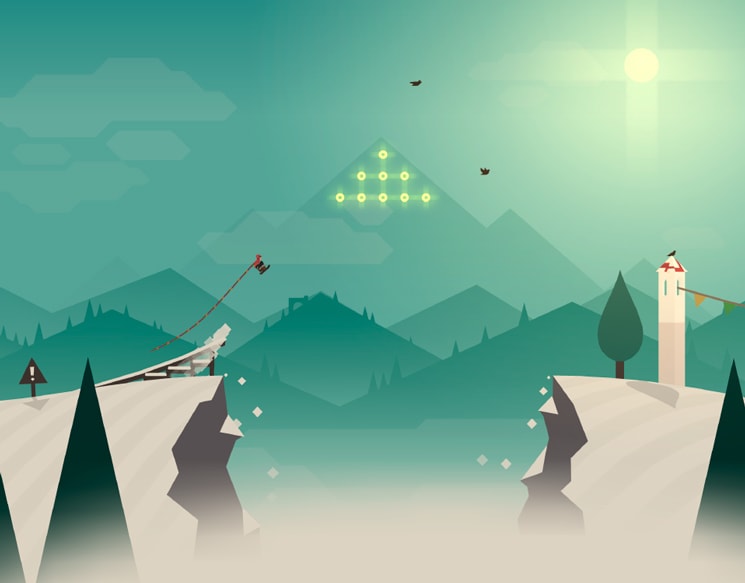When Apple's iPhone and iPad first arrived on the scene, followed not long after by Google's Android devices, gaming looked like it was finally ready to escape the confines of consoles and computers.
As wildly popular as Nintendo's DS family has always been, outside of Japan it never shook the "toy" yoke of its Game Boy ancestor enough to win over non-gaming grown-ups. Meanwhile, Sony's PSP and Vita, for all their hi-tech horsepower, never moved past a niche market. Smartphones and tablets, though, were about to become ubiquitous.
Unlike Apple's impact on the music industry, iGaming couldn't make the old way irrelevant because it couldn't deliver an equivalent experience. But eventually mobile gaming stopped competing and instead created a complementary industry.
This was good because attempts to replicate the complexity of console or handheld games largely fell victim to simplistic touchscreen controls and undeservedly high prices. So the more that games became purpose-built and properly priced for the platform, the better.
More games wasn't inherently necessarily better. In 2014, there were about 500 iOS games released each day and another 250 dropped daily on Android. Most are godawful. This seemingly caused the gamer community to largely ignore them as far reviews, news, subreddits, etc. compared to console and handheld coverage.
Nonetheless, mobile gaming nearly doubled in global sales last year, hitting $25 billion and is on track to overtake console sales before New Year's and reach $45 billion by 2018.
That's a lot of bucks, not to mention a lot of players, with 70 percent of smartphone-owners gaming on them. No wonder Nintendo is looking beyond its sadly underrated Wii U to double-jump into the mobile market (though they're hoping it'll be like a drug dealer freebie enticing people to their "premium" offerings).
Admittedly, most of the money is in free-to-play games like Candy Crush Saga, Kim Kardashian: Hollywood, Clash of Clans and Game of War, where gamers known as "whales" spend hundreds on in-app purchases to save time or buy virtual goods and currency. But mobile gaming can't be dismissed as merely addictive money-printers.
The resurgence of point-and-click adventure games has found a perfect home on touchscreens, be they exclusives like the retro-themed Space Adventure and surveillance state stealth exercise République or ports by Walking Dead-maker Telltale and genre legend Tim Schafer of Double Fine, who has brought both his classic Grim Fandango and neo-classic, Kickstarter record-breaker Broken Age, which recently released its long-awaited second act. There are even new old-timey text adventure experiments like Device 6 and A Dark Room and gamebooks like Inkle's Sorcery! series and 80 Days.
Not to mention breakout puzzlers like the math-centric Threes or real-time strategy insta-smashes like Space Ape's Rival Kingdoms, which saw 750,000 downloads in its first weekend.
But the best mobile game in recent memory was Ustwo's award-winning Monument Valley, an MC Escher-inspired indie puzzle game that boasted arguably the best art direction and level design of any game on any platform. It's only failing was its short length, but it was dirt-cheap and followed by an expansion of equally amazing levels filled with more "fantastical architecture and impossible geometry."
Monument's success has begot other stylishly stylized, whimsically simple, highly detailed and totally chill games like beautiful music-fuelled puzzler Adventures of Poco Eco - Lost Sounds and the Toronto-made Alto's Adventure. The latter applied the mobile-beloved endless runner genre to an atmospherically gorgeous snowboarding game set in a llama-infused alpine wonderland.
"We aren't big fans of the games that try to feel do console-like snowboarding on mobile," explains Snowman co-founder Ryan Cash. "After getting into Tiny Wings we saw the potential to create something really artistic and emotional that would feel good, something that didn't need to be over the top or focus on Olympic-style snowboarding and crazy tricks."
That's the rub, basically. While there are still a few great mobile games that try to emulate the console experience (like high-end action game Implosion: Never Lose Hope) the best new games (like 70s-set driving strategy sim Does Not Commute) are taking a minimalist approach where they focus on executing a simple gameplay idea paired with a unique art style.
"Apple has started to really get behind the indie guys making games for the iOS platform, and I think people are starting to come full circle on quality over quantity," says Cash, adding that he'd still like to see more discovery assistance.
"The store is getting crowded, but there are more talented people than ever getting into games, and it's been really cool to see what people have been able to come up with."
As wildly popular as Nintendo's DS family has always been, outside of Japan it never shook the "toy" yoke of its Game Boy ancestor enough to win over non-gaming grown-ups. Meanwhile, Sony's PSP and Vita, for all their hi-tech horsepower, never moved past a niche market. Smartphones and tablets, though, were about to become ubiquitous.
Unlike Apple's impact on the music industry, iGaming couldn't make the old way irrelevant because it couldn't deliver an equivalent experience. But eventually mobile gaming stopped competing and instead created a complementary industry.
This was good because attempts to replicate the complexity of console or handheld games largely fell victim to simplistic touchscreen controls and undeservedly high prices. So the more that games became purpose-built and properly priced for the platform, the better.
More games wasn't inherently necessarily better. In 2014, there were about 500 iOS games released each day and another 250 dropped daily on Android. Most are godawful. This seemingly caused the gamer community to largely ignore them as far reviews, news, subreddits, etc. compared to console and handheld coverage.
Nonetheless, mobile gaming nearly doubled in global sales last year, hitting $25 billion and is on track to overtake console sales before New Year's and reach $45 billion by 2018.
That's a lot of bucks, not to mention a lot of players, with 70 percent of smartphone-owners gaming on them. No wonder Nintendo is looking beyond its sadly underrated Wii U to double-jump into the mobile market (though they're hoping it'll be like a drug dealer freebie enticing people to their "premium" offerings).
Admittedly, most of the money is in free-to-play games like Candy Crush Saga, Kim Kardashian: Hollywood, Clash of Clans and Game of War, where gamers known as "whales" spend hundreds on in-app purchases to save time or buy virtual goods and currency. But mobile gaming can't be dismissed as merely addictive money-printers.
The resurgence of point-and-click adventure games has found a perfect home on touchscreens, be they exclusives like the retro-themed Space Adventure and surveillance state stealth exercise République or ports by Walking Dead-maker Telltale and genre legend Tim Schafer of Double Fine, who has brought both his classic Grim Fandango and neo-classic, Kickstarter record-breaker Broken Age, which recently released its long-awaited second act. There are even new old-timey text adventure experiments like Device 6 and A Dark Room and gamebooks like Inkle's Sorcery! series and 80 Days.
Not to mention breakout puzzlers like the math-centric Threes or real-time strategy insta-smashes like Space Ape's Rival Kingdoms, which saw 750,000 downloads in its first weekend.
But the best mobile game in recent memory was Ustwo's award-winning Monument Valley, an MC Escher-inspired indie puzzle game that boasted arguably the best art direction and level design of any game on any platform. It's only failing was its short length, but it was dirt-cheap and followed by an expansion of equally amazing levels filled with more "fantastical architecture and impossible geometry."
Monument's success has begot other stylishly stylized, whimsically simple, highly detailed and totally chill games like beautiful music-fuelled puzzler Adventures of Poco Eco - Lost Sounds and the Toronto-made Alto's Adventure. The latter applied the mobile-beloved endless runner genre to an atmospherically gorgeous snowboarding game set in a llama-infused alpine wonderland.
"We aren't big fans of the games that try to feel do console-like snowboarding on mobile," explains Snowman co-founder Ryan Cash. "After getting into Tiny Wings we saw the potential to create something really artistic and emotional that would feel good, something that didn't need to be over the top or focus on Olympic-style snowboarding and crazy tricks."
That's the rub, basically. While there are still a few great mobile games that try to emulate the console experience (like high-end action game Implosion: Never Lose Hope) the best new games (like 70s-set driving strategy sim Does Not Commute) are taking a minimalist approach where they focus on executing a simple gameplay idea paired with a unique art style.
"Apple has started to really get behind the indie guys making games for the iOS platform, and I think people are starting to come full circle on quality over quantity," says Cash, adding that he'd still like to see more discovery assistance.
"The store is getting crowded, but there are more talented people than ever getting into games, and it's been really cool to see what people have been able to come up with."




